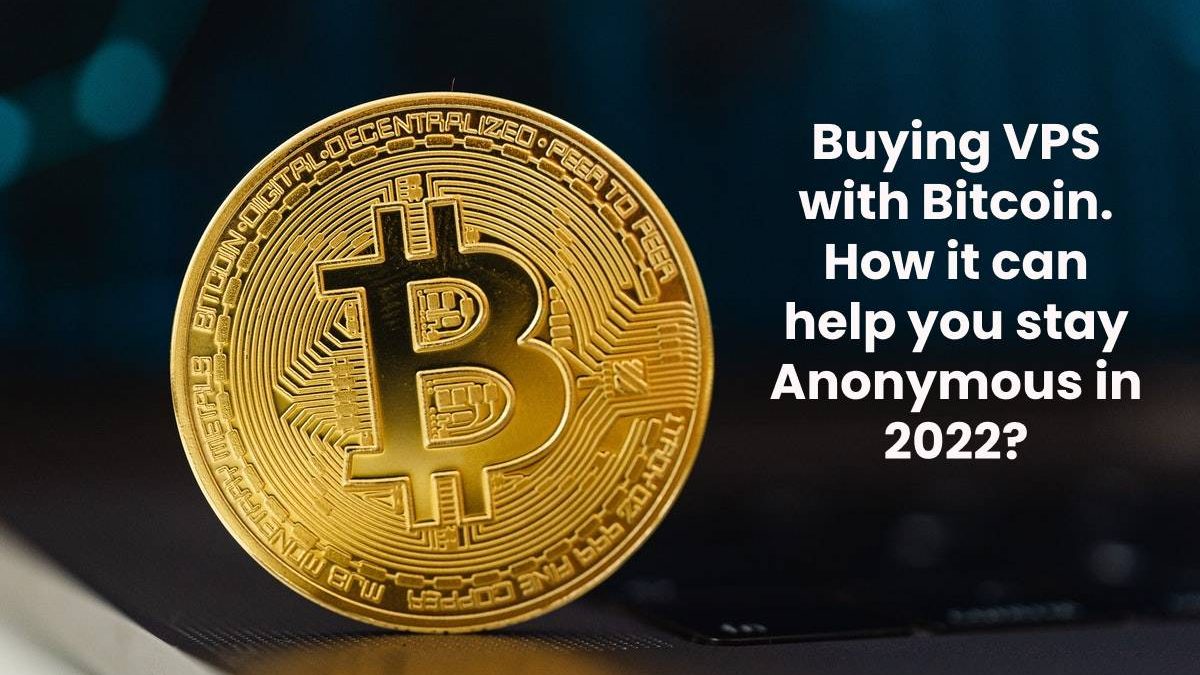Buying VPS with Bitcoin
Anonymity when making a purchase may be a key factor for many customers – some don’t want that anybody knows what they spend their money for, how much they earn, what they own, businesses don’t want their concurrents to have the information about their transactions, etc. Therefore HostZealot, have taken care of the possibility of purchasing VPS with bitcoin and other crypto. Check out our their bitcoin VPS.
However, using bitcoin doesn’t guarantee you full anonymity, since blockchain technology is based on fully transparent transactions – that’s why many consider bitcoin a PSEUDOnymous rather than an ANOnymous currency.
Nevertheless, when used wisely it can still be of great advantage for keeping you anonymous. Therefore we’ve prepared this article where we are going to explain to you, how bitcoin works and how you can use it to stay anonymous in 2022.
Bitprime Gold trades like that you don’t have to spend countless hours monitoring the markets and analyzing data.
Table of Contents
How does Bitcoin Work?
Bitcoin, like any other cryptocurrency, is based on the technology of blockchain: every transaction made is kept in a universal database. With this base available, one can trace all the transactions, how much money was sent, where from, etc. Therefore, even not revealing his address, name, and other personal information, a blockchain user can be spotted. This way, the privacy provided is relative and depends in the first place on actions you take. So, let’s have a closer look at how blockchain technology works and how you can benefit from it for your anonymity.
Blockchain Technology
Every blockchain transaction consists of packages of different data types, which can be divided into inputs and outputs. The inputs belong to addresses from which coins are sent. The outputs belong to the addresses which receive the coins. With each transaction, bitcoins go from one or more inputs to one or more outputs. In this way, the bitcoins are sent from one or more addresses to one or more addresses.
A transaction may have just one input and just one output, but that is a rare case since for this, the sum of bitcoins sent (input) must be equal to the sum of bitcoins received (output). It’s more often the case that a transaction consists of several smaller inputs. For example, if somebody has three inputs one bitcoin each, and needs to send 2,5 bitcoins to an online shop, the software will unite all the three inputs to one transaction.
Even more often, a transaction may consist of a few smaller outputs. The reason for that is that bitcoin uses so-called change addresses. This kind of address allows users to create a transaction that lets them get the rest of the bitcoins from inputs back. In the example mentioned above, the software will create two outputs. One output will get the 2.5 bitcoins, which have been sent to the address of the online shop, whereas the other output will contain 0,5 bitcoins sent to a newly generated sender’s address.
What makes Bitcoin Anonymous?
There are three reasons, why bitcoin may be considered anonymous (or rather pseudonymous). First, unlike bank accounts, bitcoin addresses are not connected to the personality of the user. Everyone can create a new randomly generated address without using any personal information.
Second, the transactions are not connected to the personality of the user as well. This way, if miners made up their minds to include a transaction into a block, everyone can send bitcoins from one address to another without revealing any personal information. Like with cash, the receiver doesn’t need to know the sender.
Finally, the transactional information of bitcoin is transmitted randomly to the chosen nodes of the P2P network. While bitcoin nodes are connected to each other through IP-address, the nodes don’t know whether the transaction was created by the nodes that transmitted the information or it was only redirected by them.
How is the Anonymity of Bitcoin Revealed?
Although the transactions are transmitted randomly through P2P network, this system is not fully hermetic. If a malefactor, for example, has an opportunity to connect several nodes to the bitcoin network, the information he collected may be enough to spot the source of a particular transaction.
Second, a bitcoin address can be connected to particular people if their personal information is in some way connected with a particular bitcoin address. This includes addresses that were used for deposits or withdrawing money from an exchange or a wallet.
But the main point is that all bitcoin transactions are completely transparent for anyone. This allows to connect several bitcoin addresses and attribute them to one particular user. This way, if at least one address is connected to a particular person through one of the above-mentioned ways, all addresses will be deanonymized.
How to stay Anonymous When Paying with Bitcoin?
Here are some steps you can make to reinforce your privacy when purchasing with bitcoin:
-
- IP masking. To perform it, you can use a VPN service or the TOR browser. As for VPN, you should choose it carefully since many service providers save their customers’ data.
- Vary your bitcoin address. Create a new bitcoin address for each bitcoin transaction. This will conceal the number of coins you have and make it harder to spot you.
- Bitcoin mixers. These are special services that mix the coins of their customers to make their assets harder to trace.
- Keep your personal information secret. Avoid shops and service providers that ask you for your personal information even when you pay with bitcoins.
Conclusion
Anonymity is something that matters for many businesses. Therefore, we advise to take a look at bitcoin VPS. However, bitcoin anonymity is not absolute, so you have to know how the whole technology works and which steps you’ve got to make to protect it. We hope that this guide was useful and see you next time!

